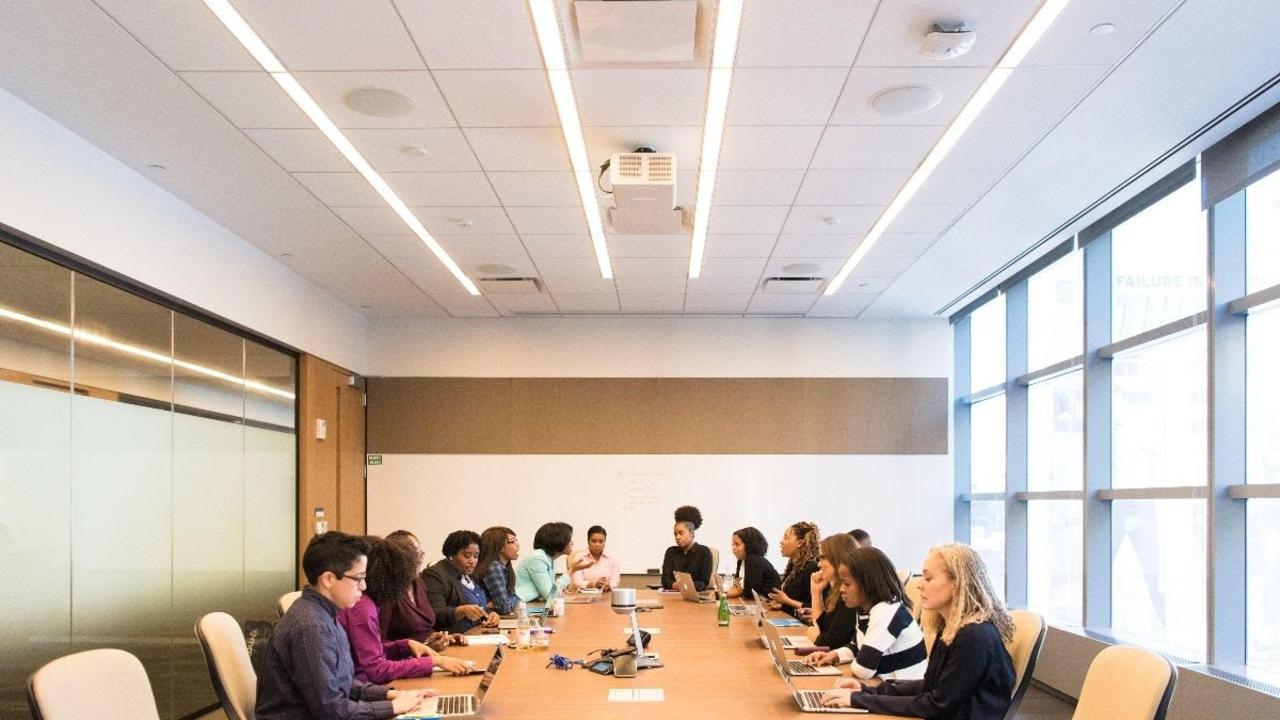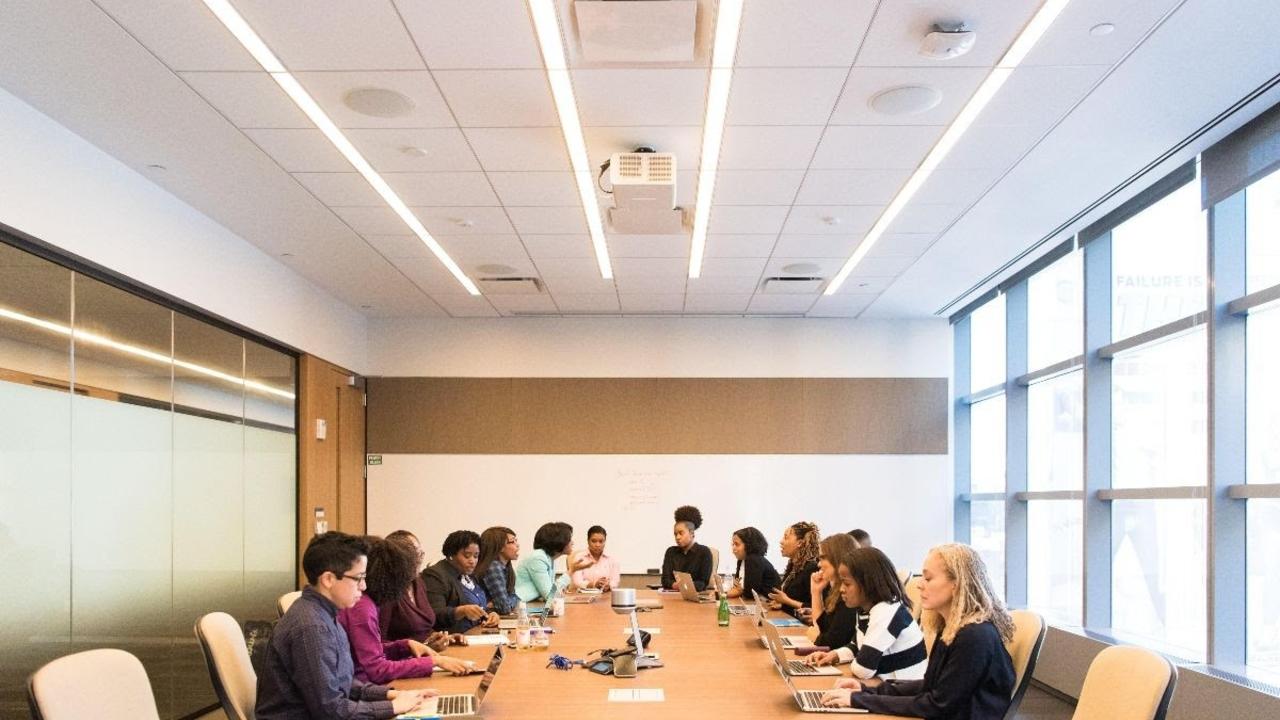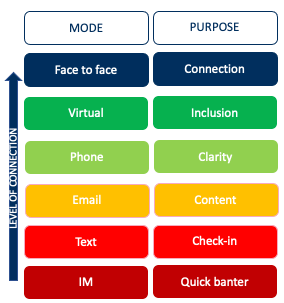There's probably every chance that at the beginning of the year you thought you couldn't fit any more meetings into your already bloated calendar. Am I right, Alena? Then with the introduction of virtual meetings in March, meeting mania took on a whole new meaning. Suddenly the default was to book a zoom/Teams meeting and make sure your top half was presentable. The term, "Zoom fatigue" entered our vocabulary.
Why get better at meetings?
Bestselling author of Eat That Frog: Get more of the important things done today, Brian Tracy said "Nobody works better under pressure, just faster" and I think we experienced a lot of that this year. As the sun sets on 2020 and companies start to bring their workforce back into the office, it's a great time to reassess your team's discipline around meetings. As a leader in finance, it's your role to set the tone, so I wanted to share with you my top 10 tips for more better meetings that should help to:
• Reduce the number of meetings in total
• Reduce the number of meetings you need to attend
• Improve the quality and effectiveness of the meetings you attend
Being an auditor in my former life, who lived and died by timesheets and 6 minute increments, when I think about the hours consumed in mindless meetings, I can't help but calculate the thousands of dollars sunk in every meeting and the opportunity cost as a result. Given that most finance teams and organisations in Australia at the moment are tightening their belts and have some sort of cost efficiency program in place, time spent in meetings should provide some quick wins.
We need to get intentional about our meetings.
We need to move out of default mode and into value driven performance, where for every meeting you attend there is a clear outcome that moves you toward your goal. Where every person present needs to be there, understands their contribution is imperative, and has done the relevant preparation in advance of the meeting.
Who looks genuinely interested?
op 10 tips for more effective meetings:
1. Plan and prepare for them.
You may have seen the image of the Duke of Sussex preparing for his speech at the base of the Opera House stairs. If a member of the royal family can take the time to prepare, then I think you can to. It is a simple sign of respect that if you are going to ask someone for their time, that you do the work to ensure that investment of time is worthy.
2. Prepare a C-POST:
This is a framework that helps you – in about 5 minutes – get clear on what you want from the meeting. This helps inform how long the meeting needs to be and who needs to be there. A C-POST stands for:
1. Context: Describe the events leading up to the meeting and the overall strategy that sits behind the meeting's purpose. This should be a simple paragraph.
2. Purpose: Describe the purpose of the meeting. For a 30 minute meeting, there should be 1 primary purpose, with possibly a secondary benefit.
3. Outcome: Get clarity on the outcome you need to achieve from the meeting. What do you want (or want others to) think, feel, say or do as they leave the meeting. This is one of the most important parts of planning for a good meeting, but equally one of the most overlooked.
4. Structure: What is the structure of the meeting? How much discussion will there be, presentation, etc. This could be your running order or agenda.
5. Timing: When is this meeting going to be, and for how long. It's also helpful to include here how long any pre-read might take.
Once you have completed the C-POST, stick it in the meeting request so that others know what is expected of them. This will also assist you with the next tip which is...
3. Critique the attendee list.
We've all sat in meetings knowing that we didn't need to be there. Or being blindsided and only realising halfway through you were the wrong person to be invited. So don't do that to others. When you are creating the attendee list, assign everyone a role and clearly understand each individual's contribution to the meeting. In Donna McGeorge's book, The 25 Minute Meeting, she describes the 5 key roles in a meeting: the leader, the facilitator, the information giver/getter, the decision maker and the note taker. Take a look at the meetings you have on today: are these roles clear?
4. Send an email.
In many areas we've made the assumption that everything needs to happen in a meeting. But if you are going to invest time and energy into a meeting, make sure that the content warrants it. Remember, there are other modes of communication and quite often task 'stuff' – progress updates to the year-end timetable or accounting issues, for example, are best kept to a brief email so that any in-person time can be used more effectively. I understand that your inbox is probably overflowing just as much as your calendar, but again it comes down to being intention about the way you communicate and use the different forums available to you.
5. Raise the bar.
As I said before, it starts with you. Make preparation and pre-read a part of your meeting expectations and make sure you role model that behaviour. This will dramatically reduce the number of hours you'll need to spend in meetings and will allow you the make faster and more informed decisions.
6. Know a meeting's purpose.
This is covered in the C-POST above, but it can't be underestimated. One of the common mistakes is trying to achieve too many things in one meeting. It's like the saying, 'you can't ask for marriage on the first date'. Well, sadly we often make the mistake of doing this at work...where we meet someone in the business for the first time, brief them on a topic area (we usually show them a spreadsheet, too!), and then ask them for input, or worse, sign-off. Understand the timing and cadence that needs to sit behind a decision and determine your need for meetings around that.
7. Decline them.
If you don't think you'll add value, or if you're not clear on your contribution, hit 'decline'. It's the fastest way to raise the bar and force people to lift around you (especially if you're the decision maker). Resist the temptation to 'want' to be in every meeting due to company politics or ego. That's right – our behaviours around meetings are indicative of your company culture in general.
8. Don't overload the agenda.
If it doesn't warrant discussion, stick it in an email. If you want to share information with people, ensure there is discussion time built in. What you will find is the number of agenda items will reduce, therefore encouraging you to critical evaluate what's most important to cover face to face.
9. Be clear on time.
Have a running order, and ensure you are clear at the start of the meeting that you will be running to time. If you feel that the conversation is starting to turn, but that it's important conversation, politely interrupt and confirm with the attendees that they are happy to continue this conversation. Be clear of the consequences and get their okay.
10. Teach your team #1-#9.
We lead meetings, we attend meetings. Meetings have a compound effect and sometimes the issue is that we feel like we're the meat between the sandwich. Get everyone around you operating with this level of discipline and you'll reap the rewards.
Bonus #11:
Don't forget there are many ways to communicate! I've summarised 6 methods below...you may have more. When you're scheduling your meetings today, take a look at this and consider, given the purpose and your intention for your meeting, what is the most appropriate form of communication? Given your relationship with the person you're meeting, what would work best?
Everything we do is about communication. Which means that when we're assessing performance and identifying areas of improvement, it's a no-brainer to consider how effectively our team are communicating with each other and with the business.
I hope the above 11 tips prove helpful for you. Share it with your team and your colleagues and receive the compounded benefit to your day. Help everyone lift.
What's your team's communication cadence? I'd love to hear your thoughts...



